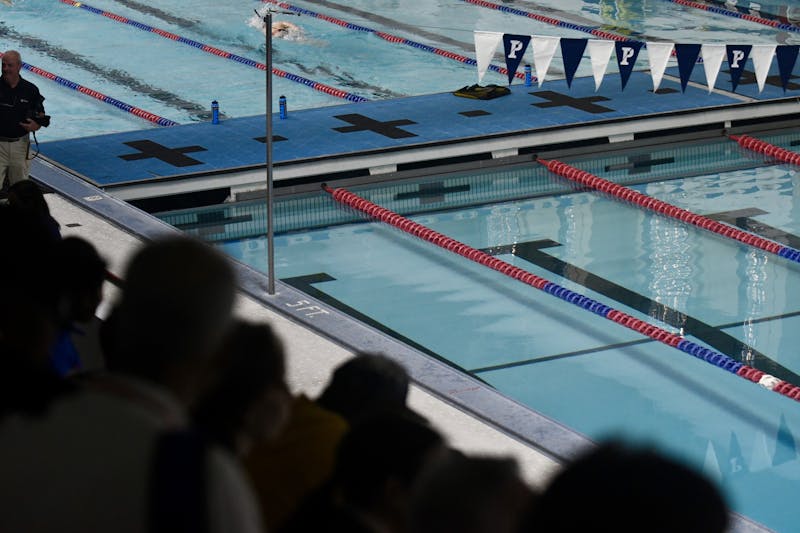From Charles Ornstein's "Paving the Way," Fall '95 From Charles Ornstein's "Paving the Way," Fall '95Before arriving at Penn in the fall of 1992, I was filled with much apprehension. I was worried about being 500 miles from home, uncertain about my freshman year living arrangements and curious about my classes. The class would not be that hard, I kept telling myself, but I wasn't worried so much about the work as I was nervous about the professor. How could I prepare for a course taught by the president of the University? Was I ready for it? What if I didn't stack up to the other students in the class? Three years after taking that course with former President Sheldon Hackney, I can say it was the best class I have had at Penn. Fifteen freshmen gathered in his living room once a week to relive the '60s -- the protests, the war, race relations, Watergate. We shared ideas, thoughts, questions with one of the most knowledgeable men in the field. We learned that a college president did not have to be our professor, per se, but one of our peers in an academic mission. That class really changed my philosophy about the emphasis on teaching at Penn. It showed a commitment from the top -- the very top -- that no faculty member at this school was exempt from his responsibilities to students. When Hackney left the University to head up the National Endowment for the Humanities in Washington, I had great hopes that his successor, Judith Rodin, would follow in his footsteps. From the moment Rodin arrived at the University, she brought undergraduate education to the forefront. The focus of her inaugural address was how to build a curriculum for the 21st century. She talked about creating connections between curriculum and academic issues, research, university life and residences. She promised to make the undergraduate experience seamless. Most of all, she pledged to make undergraduate teaching more reflective of the ideas and information discovered through faculty research. The commitment sounded unsurpassed, and indeed, I wished I could stay around for its implementation next fall. Unfortunately, Rodin decided not to fully follow through with her pledge by opting not to teach this semester or next. A spokesperson said, "There are other things on her list of priorities to take care of before she teaches." She added only that "she will be teaching soon." In light of the number of students eager to take her class and the message she is sending by not teaching, I encourage Rodin to reconsider her decision. Granted, the president has a busy schedule, busier than at most colleges. She fundraises, supervises long-term development and makes sure Penn is on track in all areas. But however busy she is, teaching should also fit into her schedule. Whether a lecture, which could accommodate 150 students, or a seminar for 15, a course taught by Rodin would instantly be one of the most popular on campus. That is not simply because Rodin is president. She is also a nationally regarded psychologist and author. A specialist in obesity and aging, she is recognized for her work on the relationship between psychology and biology in health and behavior. She has written more than 200 articles and has authored 10 books. At Yale, while she was provost, Rodin had her own lab and held faculty positions in both the Psychology Department and the Medical School. Her background is obviously intimidating, but at the same time inspiring for students who want to follow in her path. Rodin's decision not to teach is not uncommon in the Ivy League -- only the presidents of Princeton and Harvard currently have their own courses. But as Penn strives to push itself ahead, especially in the area of scholarship and undergraduate education, her absence is very telling. As I prepare to choose my last classes for the second semester of my senior year, I remember my freshman seminar with Hackney and hope that my selections can compare. But others in my graduating class should also have the same opportunity I had to take a class with the president. It is undoubtedly a tough choice for Rodin to make, one which would require a commitment of time on her part. But her presence in the classroom is as important as any of her other jobs.
The Daily Pennsylvanian is an independent, student-run newspaper. Please consider making a donation to support the coverage that shapes the University. Your generosity ensures a future of strong journalism at Penn.
DonatePlease note All comments are eligible for publication in The Daily Pennsylvanian.







